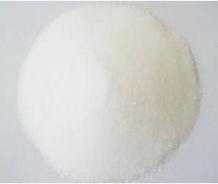In the grand theater of human healthcare, the spotlight often shines on doctors, nurses, and medical technology. But behind the scenes, playing a starring role in innumerable acts of healing, are the unsung heroes: active pharmaceutical ingredients (APIs). These tiny, often invisible molecules are the engines that power the vast machinery of modern medicine, silently shaping the course of countless lives.
What are APIs?
APIs are the chemical compounds that give drugs their therapeutic properties. They are the active players in medications, responsible for interacting with the body's systems to combat disease, alleviate pain, and restore health. Whether it's an antibiotic fighting off infection, a painkiller easing discomfort, or a life-saving insulin-regulating blood sugar, an API is an invisible hand guiding the process.
The Significance of APIs
The impact of APIs on human healthcare is immeasurable. They:
- Combat a vast array of diseases: From chronic conditions like diabetes and heart disease to life-threatening illnesses like cancer and HIV/AIDS, APIs offer a powerful arsenal against a multitude of medical challenges.
- Improve quality of life: By alleviating pain, managing symptoms, and preventing complications, APIs can dramatically improve the lives of patients, allowing them to live more active and fulfilling lives.
- Increase life expectancy: Advancements in API development have led to the creation of groundbreaking treatments that extend life spans and improve survival rates for previously fatal diseases.
- Drive innovation: The constant search for new and improved APIs fuels the engine of medical research, leading to the development of novel drugs and therapies that push the boundaries of healthcare.
Challenges and the Future
The world of APIs, however, is not without its challenges. Issues like drug resistance, access to affordable medications, and ethical concerns surrounding API production and distribution require ongoing attention and collaborative efforts.
Despite these challenges, the future of APIs is bright. With continued advancements in research, drug discovery, and manufacturing technologies, we can expect even more potent, effective, and accessible medications to emerge, further transforming the landscape of human healthcare.
Conclusion
Active pharmaceutical ingredients are the silent allies in the fight for human health. Recognizing their significance and understanding their role in shaping the future of medicine is crucial for appreciating the complex interplay of science, technology, and human ingenuity that drives medical progress. As we move forward, let us remember the invisible heroes behind the curtain, the tiny molecules that, through their quiet power, work tirelessly to heal and improve the lives of countless individuals.
